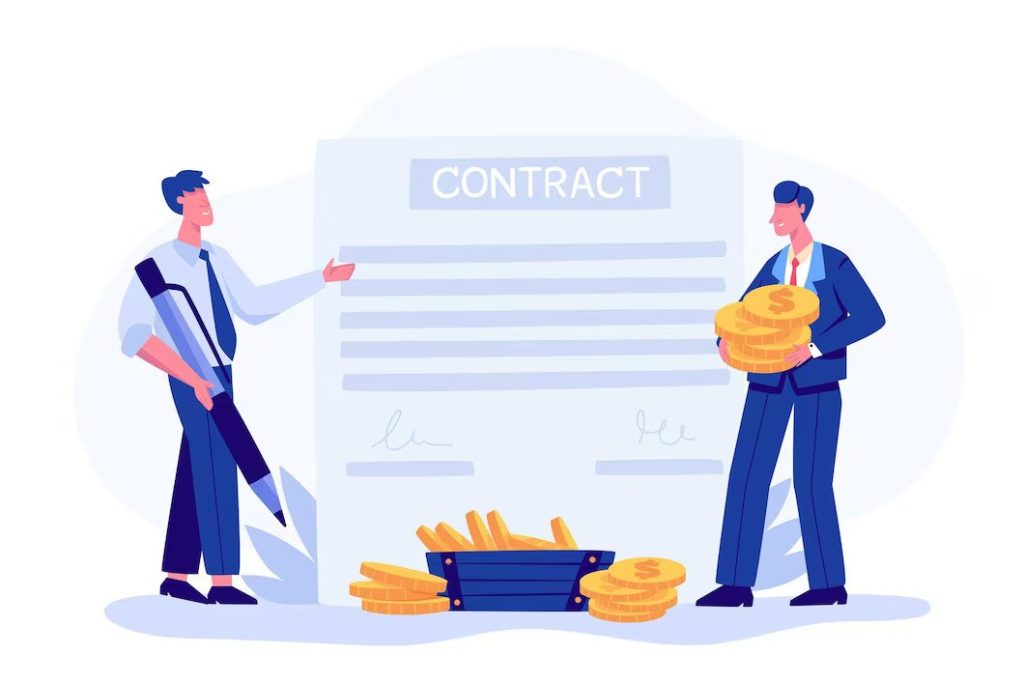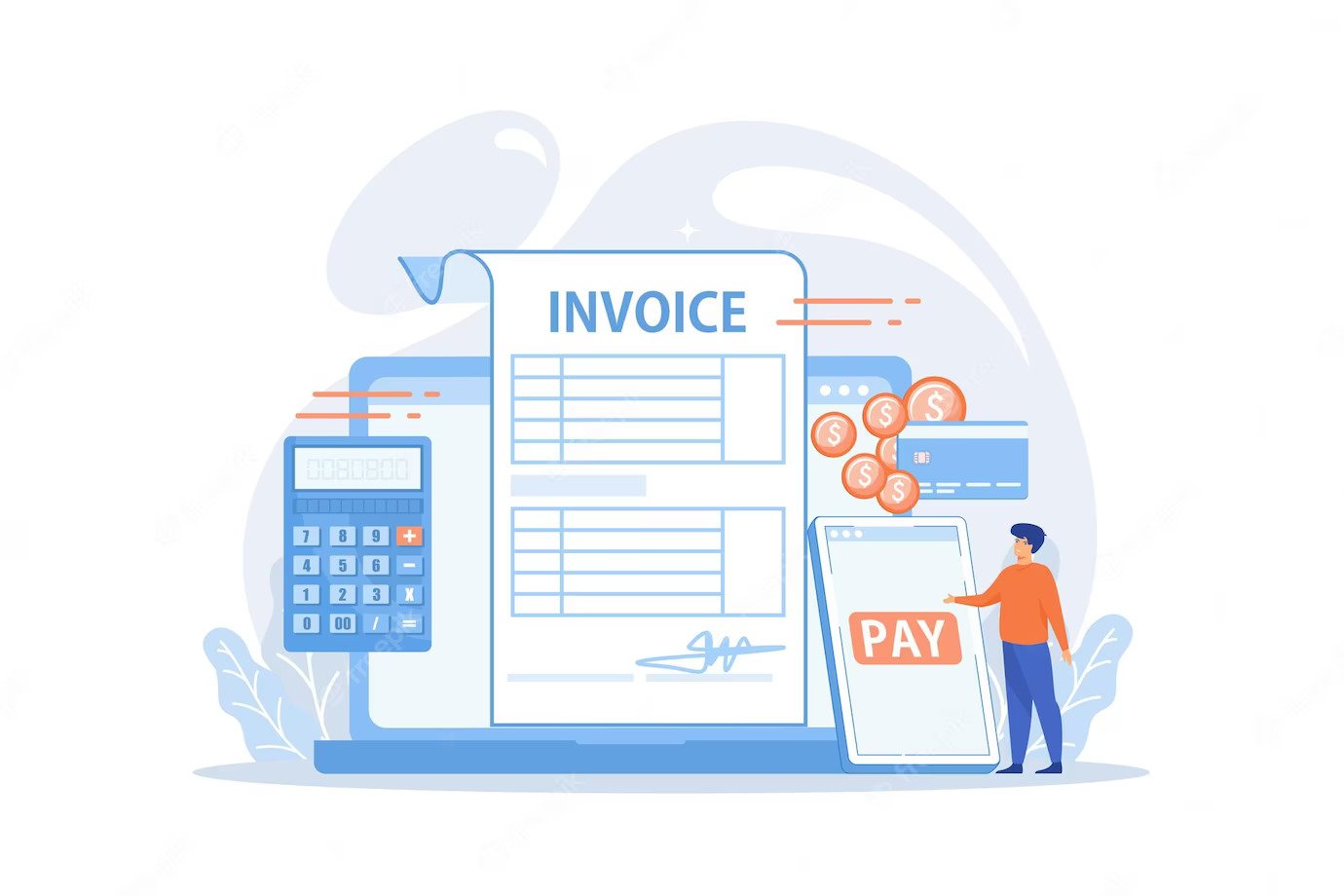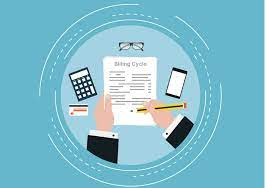Depending on your location, small business owners may not be able to invoice without a contract and understanding the intricacies of invoicing and contractual agreements is essential in business transactions.
In this article, we will try to answer that nagging question for entrepreneurs just starting their journey.
An invoice on its own is not a contract in a legal sense, because it does not prove an agreement between two parties.
Instead, an invoice is created by a business and sent to a client to request payment for its services and is therefore a one-sided document.
Although it is possible to invoice someone without a contract, it is highly discouraged.
A contract sets the relationship between you and your client and protects the rights of both parties in situations where disputes or misunderstandings arise.
The main difference between an invoice and a contract is that a contract involves an agreement between two parties, where one party sets out the terms of the agreement and the other party accepts the terms.
An invoice, on the other hand, does not involve an agreement by two sides, but instead, it’s a document created by one party and sent to the other party to request payment for services rendered.
If you need assistance creating a contract for your small business, this article can guide you through the process of making invoices that have contracts.
Article Content:
- What is a contract?
- What is an invoice?
- How to write a simple invoice?
- Invoice without a contract: Why Do You Need A Contract for your invoice?
- Step-by-Step guide to creating invoice contracts
What is a contract?
A contract is a legally binding verbal or written document signed as a form of mutual agreement between two or more parties.
It usually specifies the terms, conditions and obligations to perform a particular duty.
Contracts provide a sense of security and assurance for the parties involved because the rights and duties specified are enforceable by law.
What is an invoice?
Invoices are business documents that allow you to charge a client for the products and services provided.
It serves as an itemized record of transactions between a buyer and a seller and can be in form of an electronic invoice or paper receipt.
Invoice without a contract: Why Do You Need A Contract for your invoice?
As a freelancer, you need to protect yourself from losing valuable time and money on projects.
Contracts help you reduce misunderstandings or disputes that are likely to occur when working with a client.
Here are 3 practical reasons why you need a contract:
1. To ensure you get paid for your service
Your contract must include terms and details of payment and deadlines that ensures your client pays you for your work at the specified date or time.
2. To prevent the client from cancelling unexpectedly
Always include a kill fee in your contracts. A kill fee is an amount your client is required to pay if they wish to cancel the contract once you have started working.
This fee should not be too high but should be enough to compensate for all the work you have provided up until cancellation.
3. To protect yourself if you need to cancel the project
There are many situations where you may need to bail out of a project. You can’t do this without a contract.
You can include specific terms that allow you to cancel a project at any point without facing legal consequences from your client.
Step-By-Step Guide to Creating Freelance Contracts
Follow these steps to create your own freelance contracts:
1. Start with the Title and Date
Begin your article with a title, it should be short and clearly describe the basis of the agreement. Also, Leave room for both parties to sign and date the contract.
2. Include the Names and Contact Details of parties to the contract
Next, provide the correct information of all parties involved; Your name, address, business name, registration number, and email, including the client’s complete information, should be listed at the beginning of your article.
3. Give a detailed description of the project and cover the scope
Clearly describe the services you will provide and outline what the final product or services will look like.
Also, define any request that will count as additional services to the client and specify the rates you charge for such requests. Ensure that this section is as detailed as possible.
4. Include project deadlines
To ensure you get full profitability of a project, including all the possible deadlines you will need to complete the project. Ensure you communicate that you will charge additional fees for delays.
5. Specify your terms for revision
It’s not every time the client will agree to your contract terms immediately, you may face multiple rounds of revisions by the clients before you reach a mutual agreement.
To avoid this, include terms stating the number of times you will agree to a revision before charging the client for additional fees.
6. List pricing, rates and payment information
List a detailed breakdown of the rates and prices your services or products will cost the client. Ensure your prices include things in your projects that could incur additional costs.
7. Set conditions for contract termination
To protect yourself and the client, set clear conditions that would lead to the cancellation of the contract.
You should also include a kill fee in your contract, so you can receive compensation for your time in case the client decides to break the contract at any point.
8. Specify who owns copyright/ownership to the completed project
One of the major problems freelancers face is intellectual theft. This is why you need a contract to protect your work.
To do this, you must include a clause which states who owns the copyright to the project or work you deliver.
You want to be as detailed as possible, Below are a few things to consider when creating binding contracts;
- Are you transferring complete ownership to the client?
- Do you want to hold the rights to your work, Can the client use your work for other purposes than the one you were hired for Also?
Also, If the clients provide materials or resources to help you complete the project, you need to specify that clients cannot claim rights to any part of the project.













